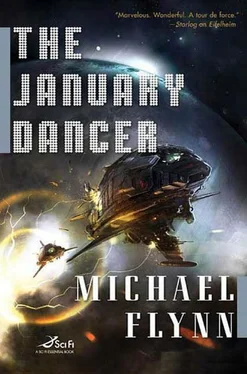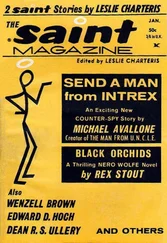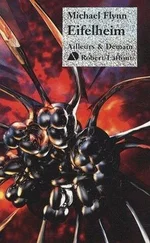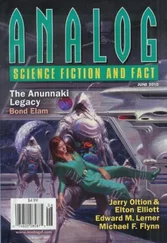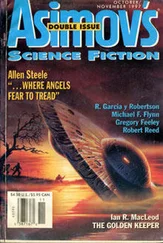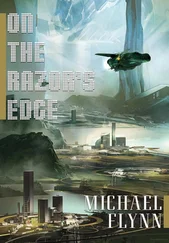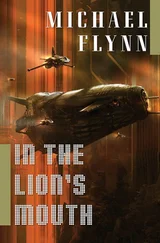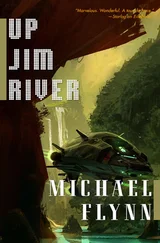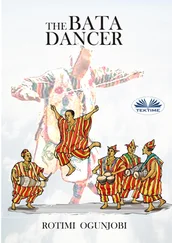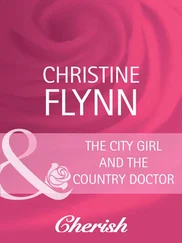“I’m working for Kungwa Hilderbrandt, the Valencian historian,” he told the senior archivist, showing him some official-looking papers that Greystroke had printed up on board Skyfarer . But the archivist barely glanced at them. He didn’t care about outworlders, not even famous outworld historians. Still, one must be hospitable. So he put on what Hugh supposed was meant as a welcoming face and waited.
“Scholar Hildebrandt is tracing the genetic versions of the prehuman legends, and—”
“What the devil is a genetic version?”
“Why, as surely you know, different versions of the prehuman legends are circulating on different worlds. Scholar Hildebrandt believes these are all ‘descended with modifications,’ as he puts it, from original versions. For example, there is a version of the Tale of the Two Toppers on Megranome that he has shown to be elaborated from a passage in the Tale of the Awkward Kitchen-maid.”
Hugh had managed to glaze the archivist’s eyes. However much he did not care about outworld scholars, he cared even less about their research. His job was to preserve and protect the documents and media in his care. About their contents, he did not give a fig.
“And so, I would like to read the oldest compendium of tales in your collection.”
“Oh, would you?” the man asked, so loudly that others in the vestibule turned and looked. “What is it with you outies? One after another, you come parading in here; and do you want to see the Articles for State? No. The Trans-Oceanic Pact? Couldn’t care less. The Collected Letters of Genghis John Chu? No, you want to read old fairy tales. Bozhemoy! You expect us to let you handle the oldest and most fragile papers we have? No one touches those. No one. I don’t care how big you are!”
Somewhat startled at this tirade, Hugh said, “No, no, goodsir. I don’t need to handle the originals. I’m only interested in the matter. Surely you have scanned images…?”
“ Of course, we have scanned images. We’re not a bunch of noovos, like some planets I could name, but won’t.”
“And I’m not really very big.” Hugh said this with his most disarming smile. He knew that his musculature, toughened by the hard months “in the wind” on New Eireann, made him seem bigger than he was.
The archivist grunted. “No, not you. It was the first one. He was a regular Nolan beast. Sign here.” He handed Hugh a light pen and Hugh entered his supposed name and homeworld and scribbled a signature. There had been seven individuals in the past month who wanted to view Document 0.0037/01. “Which was the big guy?” he asked curiously. Only two names were off-world: Elriady Moore of Ramage and Keeling Ruehommage of Wiedermeier’s Chit.
The archivist sniffed and looked at the screen. “That one,” he said, tapping Moore’s name. “Why?”
“He’s a field researcher for a rival scholar. I bet I can describe the other outworlder for you. Coal-black skin, bright yellow hair, blue eyes. Thin as a rail.”
“A-yuh. That’s her. Sweet young thing, too.”
“Alabaster accent?”
“Alabaster? Nah. She’s from the Chit.” He pointed again to the screen, as if he had never heard of false names and feigned identities. “They sound like Megranomers.”
Hugh thanked the archivist, who gave him a code and directed him to a reading room. On the way there, Hugh pulled a disposable handy from his pocket, called the base-camp number, and said, “Look for a large man named Elriady Moore.” Then he dropped the handy into a shredder and continued to the reading room.
“For all the good it did us,” he complained later that night to Greystroke. “The oldest versions of the prehuman legends. Handwritten, if you can imagine it, on paper. The annotation states that they were collected by a self-appointed commission during refugee times. Oh, that must have delighted those folks who had lost their homeworld! Academic researchers!”
They were in Greystroke’s hotel room at the Hatchley, several blocks off Great Green, and Greystroke had ordered up in-room meals. Hugh had plugged his memo stick into the hotel room’s ’face to show them the download that was the fruit of his labors. “It may have been a way to keep sane, by continuing the routines of their past lives.”
Greystroke grunted. “No, the camps needed sanitation, not sanity. I begin to wonder if Fudir’s Commonwealth was worth saving, if that’s the way their exiles behaved.” He walked over to the screen as he ate. “Funny-looking squiggles. We should’ve known they’d not have used Gaelactic back then. What language is it?”
“I didn’t want to ask the archivist. I was a scholar’s field researcher. I should have known the languages. I downloaded a copy, thanked him, and left. The Fudir looked at it before he and Bridget ban went off for their drive. He thinks it may be Brythic or Roosky. Those were two of the groups that were settled here. He says the Vraddy and the Zhõgwó used very different writing systems. He’ll take a shot at reading it when he gets back.”
“Well, getting more background on the Stonewall mythos may be useful, but it needn’t get in the way of our main task. Bridget ban followed up on your call. Grimpen was staying in Eastport near the beanstalk base. And Fudir’s friends around the Corner said he went camping in the hills. Bought a full rig at an outfitter’s—thermal bag, tent, cooker, maps, and compass—the works.”
“Question is,” said Hugh. “Did he find what he came for and decide to take a little vacation; or was he still looking when he drove to the trail-head?”
The Fudir had pulled the ground car off to the side of the road, where there was a scenic overlook, and now stood beside Bridget ban while she studied the valley below with a pair of high-resolution scanning binoculars. The Fudir tried to keep a map of the Dalhousie Valley spread flat on the ground car’s hood against the blustery winds that blew on the hilltops. Open beside the map was an ecological gazetteer of the region that he had found in a second-hand bookstore in Chel’veckistad. Now and then, for no particular reason, he would point to a passing bird and then flip through the book and Bridget ban would pretend to follow its flight with her binoculars. They operated on the theory that if they could see the Dalhousie Estate from here, the Dalhousie Estate could see them. For the same reason, the Fudir really did annotate a small notebook with avian observations. He recognized some of the birds from Jehovah and other worlds he had been on, but there were some that seemed unique to this world. All part of the grim carelessness with which these worlds had originally been seeded. He wondered if the Yung-lo worlds had failed because something vital had been missing in the original terraforming.
Bridget ban turned away from her study of the estate. “There is a steep ravine on the northeast side,” she said, “which they don’t seem to watch carefully.”
The Fudir shrugged. It was a wealthy estate, not a prison. The guards were to fend off importunate visitors, not a determined infiltration. There would be fences, burglar alarms, possibly patrols and surveillance cameras. There were unlikely to be trip wires, dead lines, or even motion sensors. The guards would not want to scramble after every fox or rabbit that ran across the grounds.
“There’s an interesting bird,” said the Fudir. “A double-bellied nap-snatcher.”
Bridget ban turned her binoculars on the approaching ornithopter. Two guards in gray uniforms.
“Twenty-four minutes response time,” said the Fudir with a touch of contempt.
“Try to be polite. We don’t want them to make any special note of us.”
“Yes, yes, missy. No more’n they already have. Remember, this road is outside the estate bounds. We’ve every right to be here.”
Читать дальше
